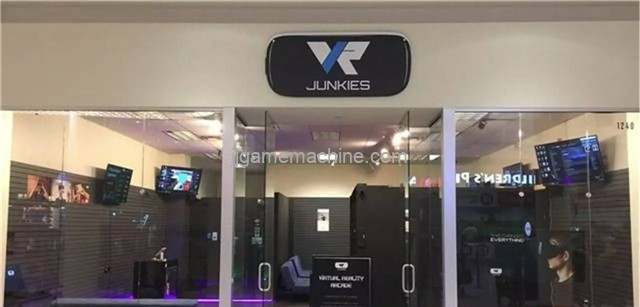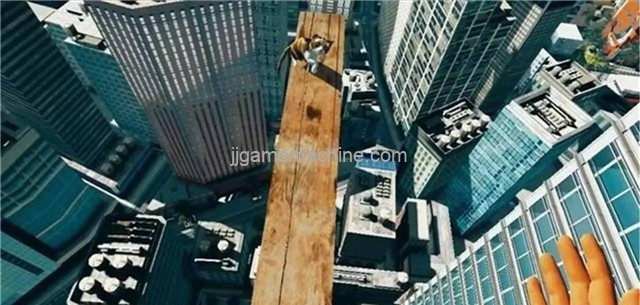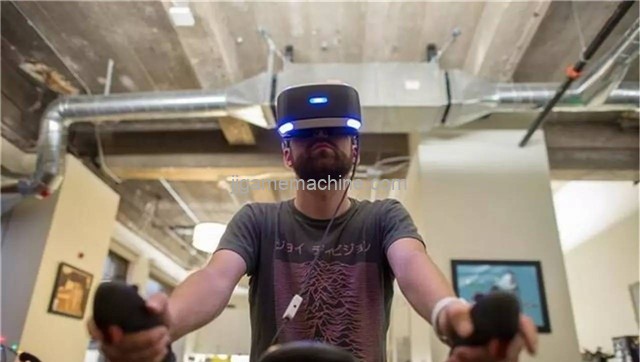From China to the rest of Asia to Europe and North America, VR arcades are emerging around the world. Earlier this week, Rikard Steiber, HTC's senior vice president for VR, also announced plans for a small arcade project. The company is even considering opening two more arcade pilot projects. Last week, the HTC Arcade Center, called Viveland, officially opened in Taipei. Since then, HTC also plans to build Vive parks in Europe and the United States.

"It has a big impact on VR developers and the industry as a whole." "One day, the VR arcade will be everywhere," Staples said. "
Staples pointed out that China already has thousands of VR arcades, there is also a large market around the world.
Vive's entry into the VR arcade market can increase the exposure of VR technology, increase sales of VR headsets and matching games, and provide a larger user base for game developers.
A lot of VR.
Kevin Williams, general manager of KWP, an outdoor digital entertainment consultancy, and founder of the Outdoor Digital Entertainment Network Association, says VR technology's popularity in entertainment centers is stable, despite the ups and downs of the heat in the home market.
"VR has never lost its popularity in outdoor entertainment and business simulation." "The Disney Adventure indoor theme park project, which integrates the VR platform, has been incredibly successful," he said. Aladdin's Magic Carpet VR Ride, which opened in 1997, is the oldest VR entertainment project and proves that VR has a high chance of success as a travel entertainment program. "
Today, the price of VR headsets and their accessories in the consumer sector has fallen to an acceptable level. As a result, the VR experience has re-emerged as an arcade hall, and there are no shortage of success stories, most of which are located in China, and immersive entertainment such as 4D cinemas is not uncommon.

"Most people Chinese enjoy VR at home and have long been used to playing games in Internet cafes." "In addition, there is a high level of popularity in gaming halls and entertainment venues in the business world," says Kevin. Therefore, VR arcade hall is very suitable for growing in this soil. "
China's VR arcade hall is divided into three categories: the first provides all kinds of the latest consumer-grade VR systems; the second is called VR Paradise, which is a chain operation that offers only the latest VR gaming system of a certain brand; and the third is the equivalent of a real-life CS, using a VR laser transmitter as a weapon to allow players to experience the battle. These venues charge a one-time entrance fee or a game time fee. Some popular theme parks charge both fees.
As popularity grew, game developers such as Capkong and Wandai Nan Dream Palace began designing special games for VR arcade halls: in a Capu Air game, players can play giant monsters, trample cities and fire lightning in the VR world with a two-footed controller, while Wandai Nan Dream Palace sends players to hundreds of storeys of balanced wood to save trapped kittens.

Others let players ride robots that can walk around, and then experience gun battles through VR helmets or virtual worlds built with 3D glasses and screens. Simuline, on the other hand, adds effects such as flash and wind to the 4D VR cinema experience.
Experience the illusions first-hand.
Staples also argues that growing demand is one reason HTC is promoting its content management and distribution system, the Viveport Arcade. The system not only allows Chinese mainland and Taiwan's VR arcade operators to easily purchase game licensing, but also reduces the trouble of game developers charging operators a service fee. Finally, arcade operators simply pay a service fee for game time and then increase the price to sell the service to consumers. Most of the service fees fall into the hands of game developers, while Viveport earns only a portion of the draw. Outside china, Viveport is focusing more on non-gaming, with Valve, HTC Vive's hardware and software provider, in charge of game licensing.
"The biggest challenge for arcade operators is the lack of exciting content." "You can open a video room by buying a few DVDs, but that doesn't apply to arcade rooms," Staples said. Arcade rooms need stable content sources. To do this, arcade operators need to contact the developers themselves and make sure they pay the fees. This approach cannot be scaled up because arcade operators do not have access to all the developers worldwide, nor can developers reach out to all potential arcade operators. So they needIveport and Valve to act as intermediaries. "
While it earns a lot of revenue from running stores and arcades, Vive's main reason for entering the arcade industry is not this.
"Our VR Arcade is a demonstration window that we hope will inspire more business partners and enable more people to experience VR," Staples said. "

The problem with VR is that it can't be described in words and must be experienced first-hand. HTC is pushing VR experience devices to Best Buy and Microsoft Experience stores in the U.S. in hopes of promoting VR.
"Soon, for a few dollars, even our parents will be able to experience VR." "This will accelerate the overall development of VR," Staples said. With the exception of the core players, every ordinary person has access to this technology. "
The rise of VR arcades has not only stimulated game developers, but has also allowed more companies to invest in the development of VR peripherals.
VirZoom has created a fitness bike for VR headsets and is selling it to VR Arcade, which will ship to the U.S., China and Europe this month. Spencer Honeyman, the company's marketing manager, said: "VR Arcade is very interested in our products, and by pedaling, players can play racing, tank fights and even sky-high. "
Haniman thinks the VR arcade room has a lot to offer.
"Although users can buy their own VR headsets, as well as the accompanying high-end PC or PS4, the VR Arcade Room still offers a higher-end VR experience." "VR can also be used in eSports, and the VR arcade is the best place to be," he said. For areas with limited economic and housing conditions, VR Arcade is the most cost-effective virtual fantasy experience. "

Like most people, Norm Laviolette, founder of Asylum Games and eSports, is ready to enter the VR industry.
"We're building the first dedicated eSports stadium in Greater Boston and New England." "Opening a zone to showcase the latest VR technology is an important part of this project," he said. "
The stadium is scheduled to open in mid-2017 for eSports, business meetings, social events and player gatherings.
"No media can provide a physical, psychological, or emotional response similar to VR." "Our VR zone will keep pace with the times, mature, and our new stadium will become a high-tech playground," he said. In addition, VR/AR technology is in the early stages of development. The cross-border development of VR, gaming, e-sports and sports that breaks the traditional concept of entertainment is exciting. We should try our best to be open-minded and forward-thinking and embrace new technologies and new forms of entertainment in the 21st century. "







